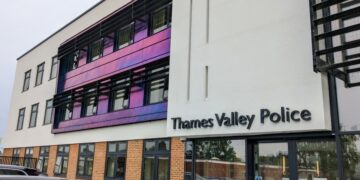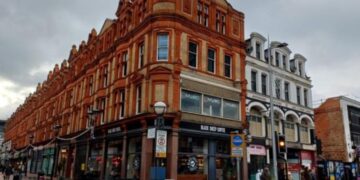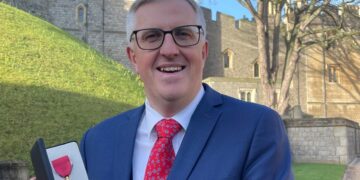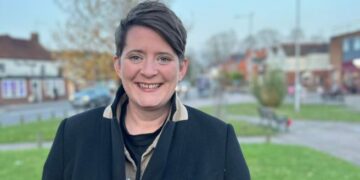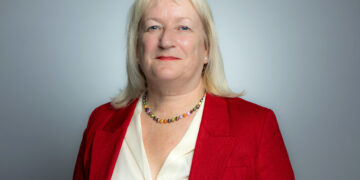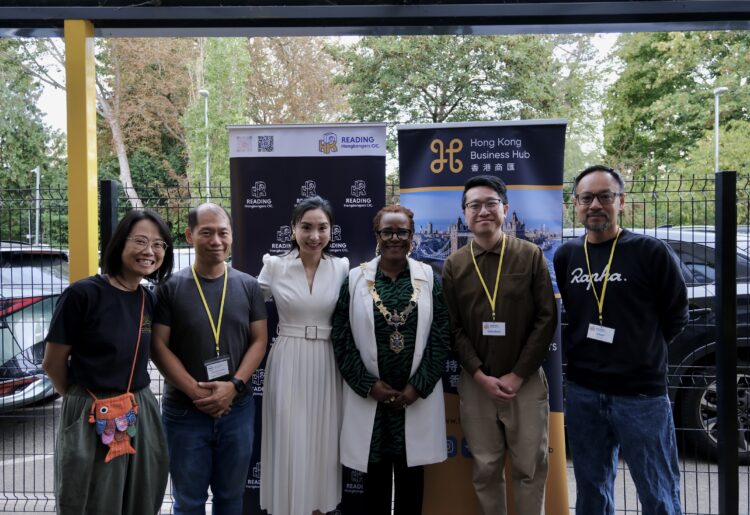“Reading is like a United nation,” said Mayor Dr Alice Mpofu-Coles at a Mid-Autumn Festival event hosted by HKCC, highlighting that multiculturalism is celebrated in this town. She praised the Hong Kong community for “integrating very well”, and said she hopes Reading will continue to welcome a variety of authentic cultures to flourish and grow.
Since 2021, more than 200,000 Hong Kong citizens have moved to the UK under the BN(O) visa scheme, many under political pressure from Beijing.
A significant number have chosen Reading as the place to begin their new lives. Reading Hong Kong Community Centre (HKCC), aiming to help the integration of Hong Kong community, has been hosting monthly events from pre-election political forums to cultural celebrations.
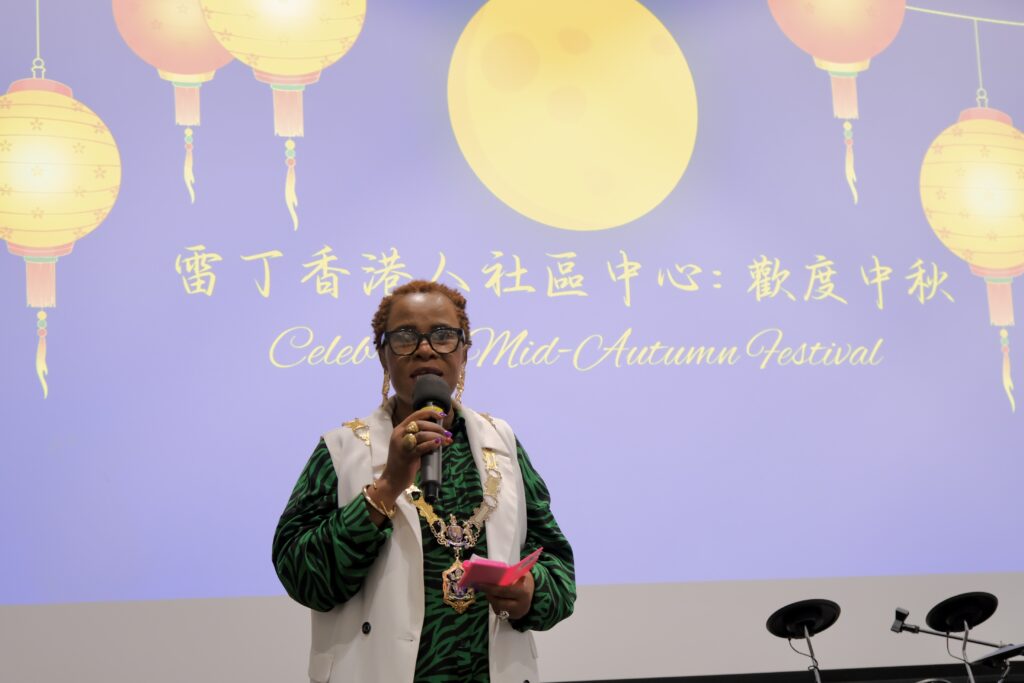
September’s theme was the Mid-Autumn Festival, with lanterns and traditional foods such as mooncakes filling the centre. The festival is rooted in gathering with friends and family, expressing gratitude and wishing for good fortune.
Both the Mayor, Dr Alice Mpofu-Coles, and Matt Rodda, MP for Central Reading, gave speeches at the Mid-Autumn Festival celebration.
Dr Alice said: “Hongkongers have integrated very well into the town. Most of them are skilled and educated, and they are bringing their knowledge here.”
Multiculturalism is a very important part of Reading, she added, with authentic celebrations of many traditions taking place across the town and more than 72 languages spoken.
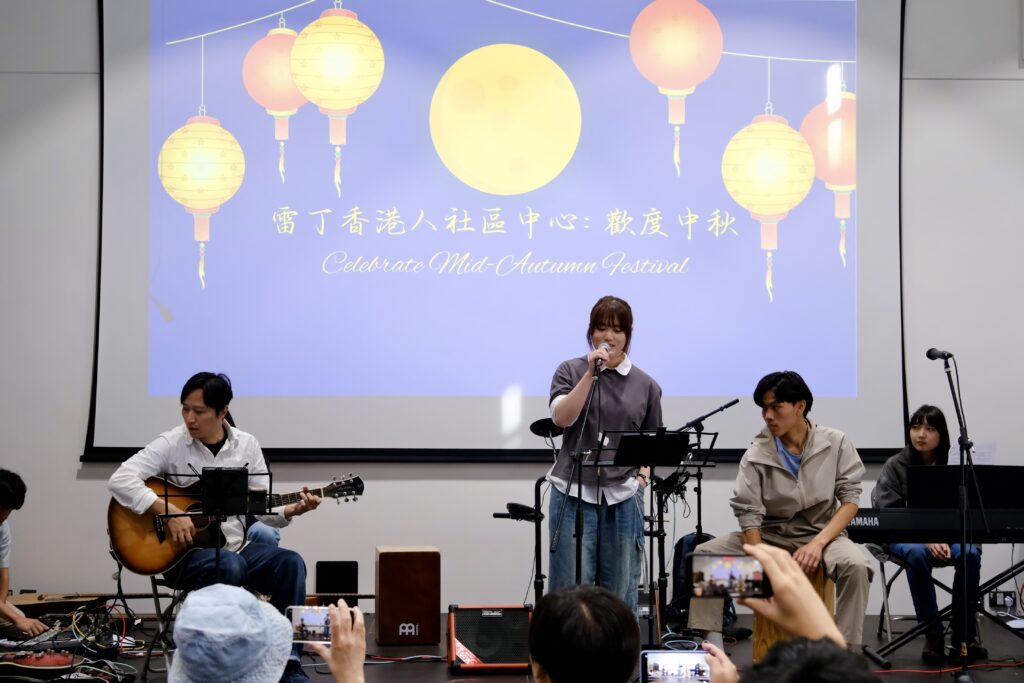
She said: “Reading is like a united nation. I was welcomed here back in 2003. So I just want to say that you are welcome to this town in every way, in everything that you do.”
A growing town where everyone can belong
Matt Rodda also emphasised the Hong Kong community’s contribution, saying he hopes everyone, regardless of background, can make the best of their lives in this growing town.
Recalling a visit to Hong Kong, he said the festival’s food and atmosphere reminded him of the city’s vibrancy: “And I hope it does the same for the Hongkongers living here.”
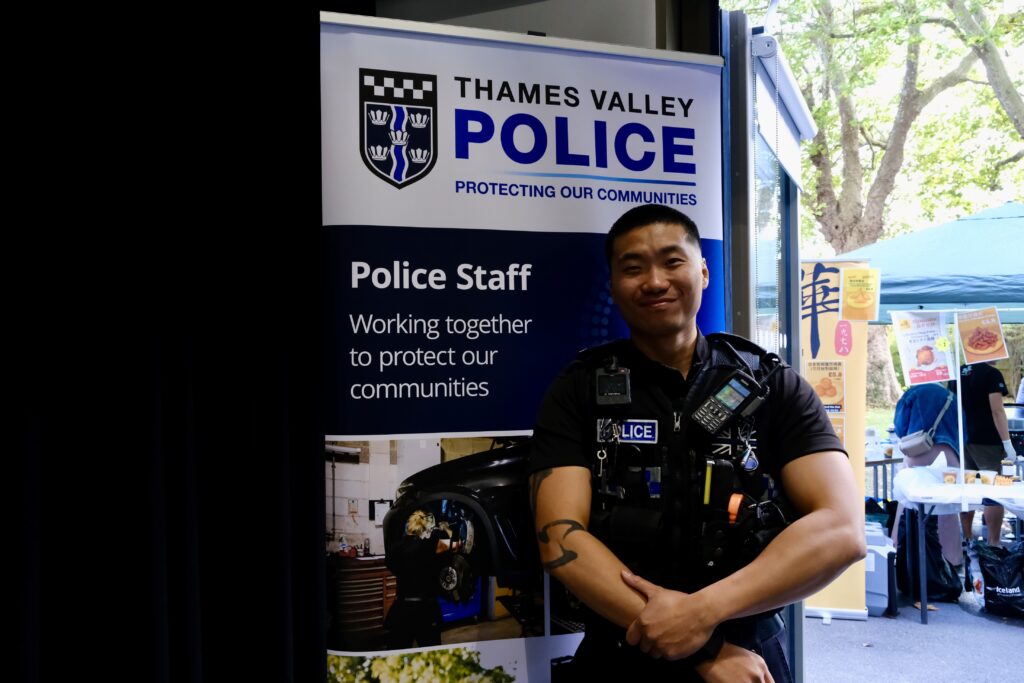
Asked about the anti-immigration climate, he said he had not seen an increase in hate crime inquiries locally. Most inquiries focused on visa and ILR issues.
Rodda added that the festival’s message of family resonated widely: “Many people are often away from their families, for studies, work or better opportunities. It is very important that they can meet and stay together.”
Finding unique ways to integrate in a new home
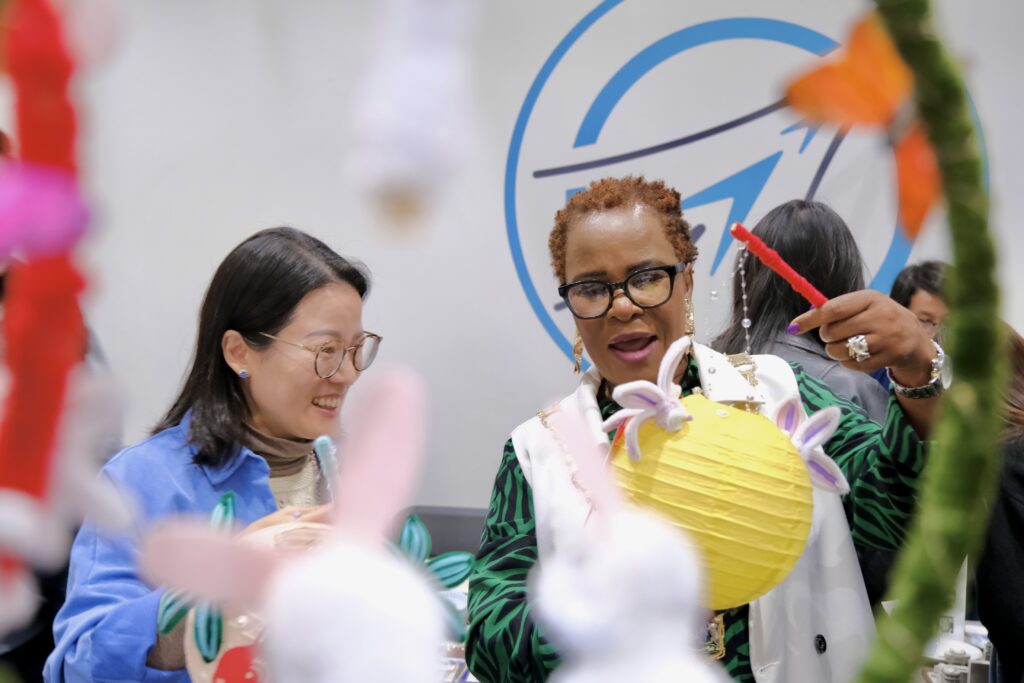
Irene, owner of Kji Living, which sells goods from plushies and stationery to Japanese make-up, started her business after arriving in the UK.
Being her own boss had always been on her wish list, and she found it achievable here, with a slower pace of living and wider room for creativity.
Having lived in the UK for four years, she believes keeping Hong Kong culture alive does not clash with integration but allows for a respectful exchange of traditions.
She said: “Some people look at others and judge solely on their skin colour, but that is out of my control. I will just keep making my efforts to integrate, so others can see it.”
Iris, a regular volunteer at the community centre, said she spends much of her time with fellow Hongkongers.
She also helps at Crafting Smiles UK, where volunteers meet weekly in a local pub to crochet items later donated to charities, from schools to cancer patients.
Although she describes herself as “not learning much English,” Iris said she is still finding her way to contribute to the town, bit by bit.
A bridge to show culture, and the determination to blend in
Ben, a spokesperson for HKCC, said the centre act as a bridge to connect the Hong Kong community with this town.
It has held a variety of events including political forums, talks on the tax system and English-language support.
Local institutions such as the NHS, police and fire service have also joined events.
Ben added: “We want to show our culture, and also our willingness to blend in. Diversity is one of the core British values.”
By Nathalie Chi


